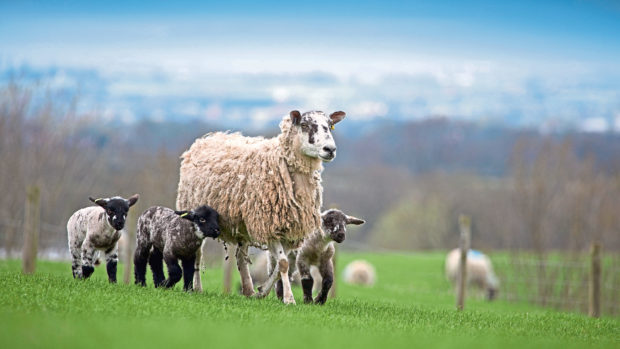Lambs which are heaviest at weaning produce the leanest meat, according to a new study.
Scientists at the Hertfordshire-based Rothamsted Research Institute have found a link between the weight of lambs in their early life and meat quality.
The study, carried out at Rothamsted’s farm laboratory at North Wyke Farm Platform in Devon, aimed to address the problem of 35% of lambs going to market being too fatty.
They found the lambs which were heaviest at the point of weaning went on to produce the leanest, most sought-after meat at market.
PhD student Andy Jones, who was the lead author of the study, said in addition to producing a better quality of meat, these heavier lambs were ready earlier in the season when demand was highest, leading to premium prices at market.
“More than a third of British lambs going to market are rated as ‘overfat’ and we’ve shown that the leanness of lamb meat is determined very early in an animal’s life,” said Mr Jones.
“Given that the majority of lambs’ pre-weaning nutrition comes in the form of ewe milk, it is now likely that carcase quality is also affected by management of ewes during pregnancy and lactation. On the other hand, how to manage lambs once weaned may not be as important as those early life experiences.”
The study involved collecting data from 2,963 lambs at the Devon unit, with the scientists finding the leanness and musculature of the meat can be successfully predicted from the growth pattern of the animal before weaning.
Lambs that were heavier at weaning – typically at 13 weeks old – were assessed to be the highest quality and most profitable at market.
Rothamsted’s honorary research scientist Dr Taro Takahashi, who led the research team, said the project may also have implications for the climate change effects of livestock farming.
He said: “At first glance, livestock’s impacts on environment and health may seem independent from one another. But as we’ve demonstrated previously, the carbon footprint of a food item should be evaluated as the ratio between greenhouse gas emissions and the overall nutritional value of the product, rather than just the nominal weight of the product.
“Besides, if these lambs spend a shorter time on the farm, this can trim down emissions of both methane and nitrous oxide as well.”
He added: “The production of leaner meat does contribute to climate change mitigation, provided that people don’t make up for the leanness with overconsumption.”
